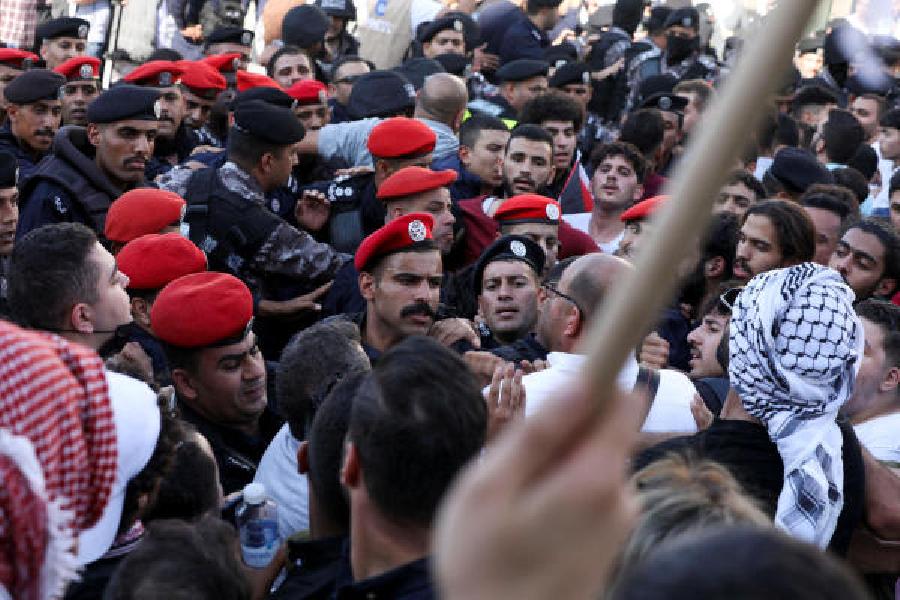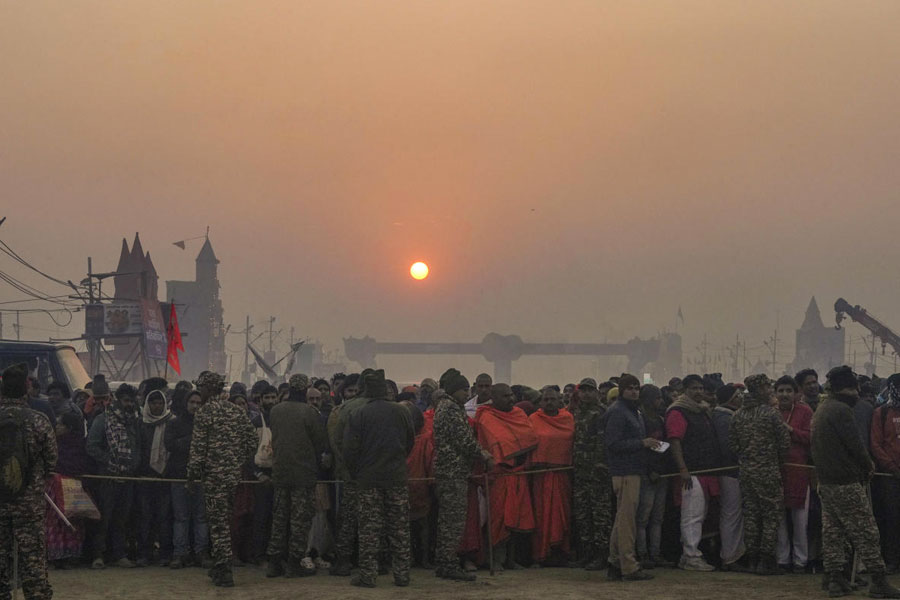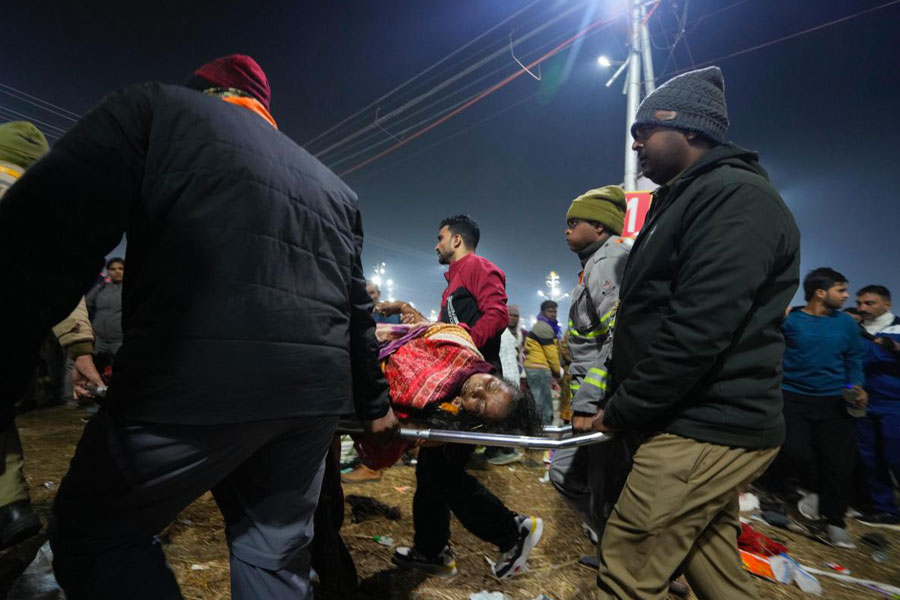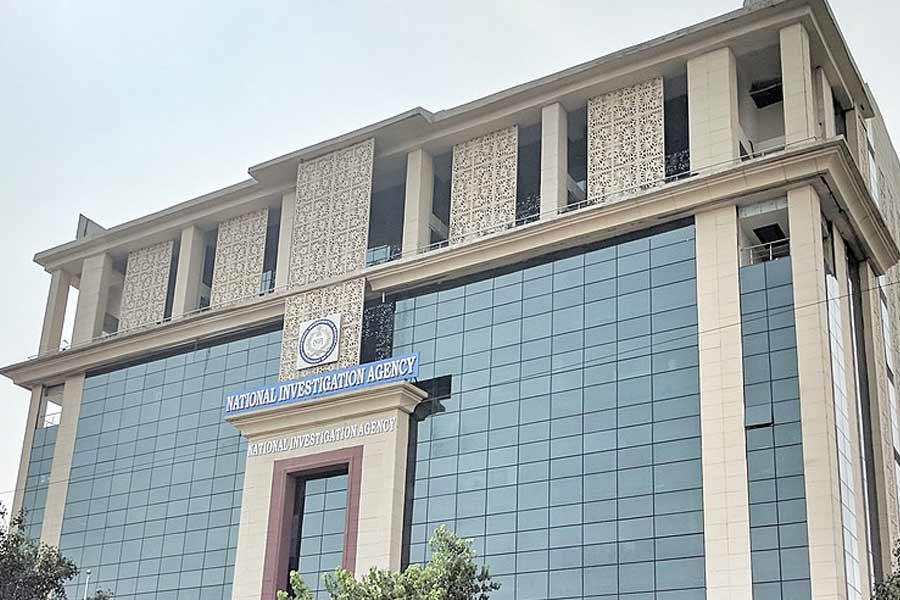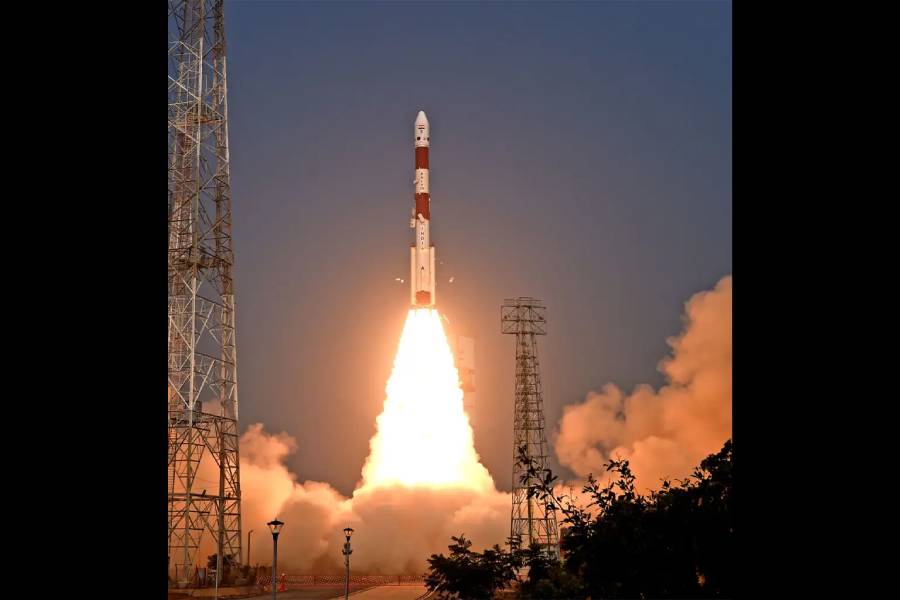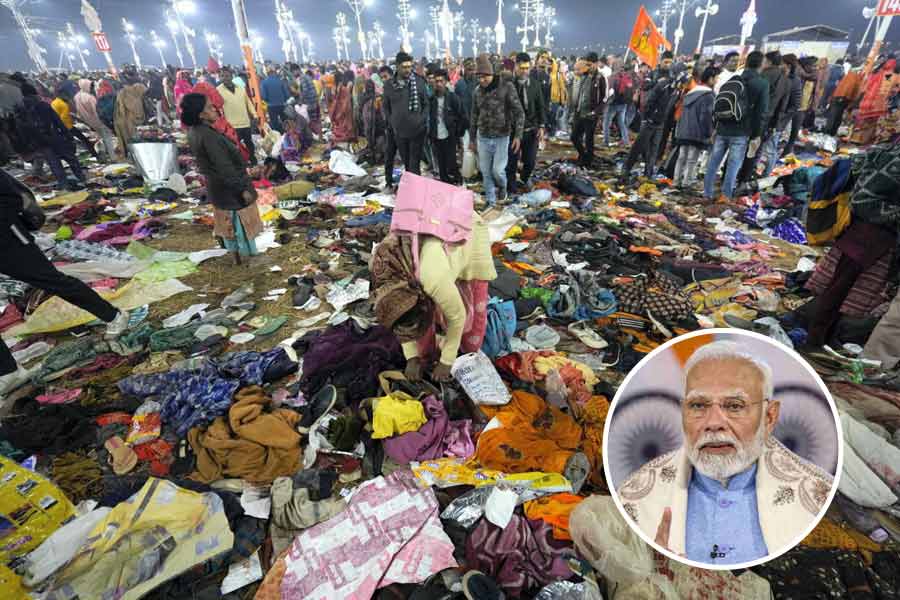Within hours after a blast was said to have killed hundreds at a Gaza hospital, protesters hurled stones at Palestinian security forces in the occupied West Bank and at riot police in neighbouring Jordan, venting fury at their leaders for failing to stop the carnage.
President Abdel-Fattah el-Sissi of Egypt, King Abdullah II of Jordan and Palestinian President Mahmoud Abbas — friends of the US who normally relish the chance to meet with US Presidents — called off a planned Wednesday summit with Joe Biden, who will now only visit Israel.
US secretary of state Antony Blinken spent much of the past week meeting with Arab leaders to try to ease tensions, but those efforts are now in doubt following the hospital blast.
The raw nerve of decades of Palestinian suffering, left exposed by US-brokered normalisation agreements between Israel and Arab states, is throbbing once again, threatening broader unrest.
“This war, which has entered a dangerous phase, will plunge the region into an unspeakable disaster,” warned Abdullah. Gaza’s Hamas-run health ministry said an Israeli airstrike on the hospital killed hundreds of people. Israel said the blast was caused by a rocket fired by Palestinian militants that fell short, and it released aerial photos and other evidence that it says support its claims.
Biden, after arriving in Tel Aviv, said the blast appeared to have been caused “by the other team”, not Israel, but that there were “a lot of people out there” who weren’t sure.
There was no doubt among the Arab protesters who gathered in several countries late Tuesday to condemn what they saw as an Israeli atrocity.
In the Israeli-occupied West Bank, which has been under lockdown since a bloody October 7 rampage by Hamas militants ignited the war, protesters clashed with Palestinian security forces and called for the overthrow of Abbas.
Israel and the West have long viewed Abbas as a partner in reducing tensions, but his Palestinian Authority is widely seen by Palestinians as a corrupt and autocratic accomplice to Israel’s military occupation of the West Bank.
Jordan, long considered a bastion of stability in the region, has seen mass protests in recent days.
Late on Tuesday, pro-Palestinian protesters tried to storm the Israeli embassy. “They are all normalising Arab rulers, none of them are free, the free ones are all dead!” one protester shouted. “Arab countries are unable to do anything!”
Egypt was the first Arab country to make peace with Israel, in the late 1970s. Jordan followed in 1994.
Protests are rare in Egypt, where authorities have waged a heavy crackdown on dissent for over a decade.
But fears that Israel could push the Gaza Strip’s 2.3 million residents into Egypt’s Sinai Peninsula, and soaring consumer prices due to runaway inflation could prove a volatile combination where a popular uprising toppled a US-backed autocrat in 2011.
A small group of activists protested late Tuesday near the US and UK embassies in central Cairo, calling on Egypt to cut ties with Israel and expel its ambassador.
Authorities have beefed up security in the south Cairo district where the Israeli Embassy is located.
“The US administration is a partner through supporting the crimes committed by the occupation military against the people of Gaza,” said Khaled Dawoud, the spokesperson for a coalition of opposition political parties and public figures.
Protests also erupted in Lebanon, where Hezbollah has traded fire with Israeli forces at the border.
“The Arab street has a voice. That voice may have been ignored in the past by governments in the region and the West … but they cannot do this anymore,” said Badr al-Saif, a history professor at Kuwait University. “People are on fire.”

